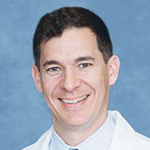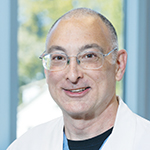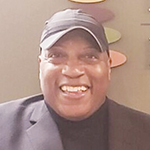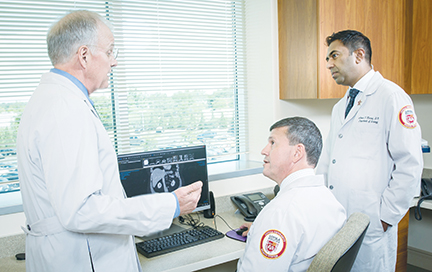The data is stark: Men die an average of five years earlier than women. Men are at higher risk than women for many serious diseases, including heart disease, lung cancer and HIV. Men also face unique health problems that don't affect women, like prostate cancer.
This is all revealed in analysis by Healthy People 2030, a framework created by the U.S. Department of Health and Human Services. Healthy People is among various sources warning that men are at greatly heightened risk for many medical and mental health concerns, as compared to women.
Ministry systems, facilities and affiliates are among those identifying the disparity, prioritizing it, working to understand it and responding to it. Several experts from such ministry sites and affiliates urge health care providers to approach men's health differently than women's health to ensure men get the care they need.

"It's really difficult to get guys to care for themselves and to prioritize their health," says Dr. Chris Funes, president of Health Leaders Network ACO, the value-based care arm of Franciscan Missionaries of Our Lady Health System.
Funes says the medical system "has to meet men where we are. We have to do this with intentionality. We have to give men alternatives" for how they access care.
Numerous interconnected issues
Ministry and ministry-affiliated experts have similar and additional concerns to those raised in the Healthy People analysis.
Funes says hypertension, diabetes and mental health are top concerns for men, as revealed by data from Health Leaders Network.
Dr. Kevin McVary, who founded the Men's Health Center at Loyola Medicine in Maywood, Illinois, in March 2020, says many of the conditions that put men at great risk are interrelated, including diabetes, sleep conditions, urological conditions, gastrointestinal disease and sexual dysfunction.

Dr. Kevin Enger, a urologist with SSM Health St. Joseph Hospital — St. Charles in Missouri, says that prostate cancer is a significant risk for men.
Aaron Perry, CEO and founder of Rebalanced-Life Wellness Association of Madison, Wisconsin, says that all of these concerns, as well as heart disease and stroke, endanger men. He notes there is a particular threat to Black men. "The data says that Black men's health is in crisis," he says.

SSM Health has partnered with Rebalanced-Life to open Men's Health & Education Centers at barbershops in the greater Madison area. SSM Health also has partnered on delivering care to men who are clients of the centers and of health care sites operated by Rebalanced-Life.
Biological, behavioral risk factors
McVary says men's increased vulnerability when it comes to morbidity and mortality is because they are both biologically and behaviorally more prone to disease and injury than women. For instance,
males tend to be risk takers, feeling they are "bullet-proof," he says. Data shows men tend to smoke at greater rates and to be much more likely to have car accidents and be killed by guns than women.
Additionally, men tend to ignore or deny that they have health problems, McVary says.
Funes adds that it is common for women to be the ones in the household who contact health care providers, schedule medical appointments and seek screenings. He laughs at the fact that even though he is a physician, he relies on his attorney wife to schedule medical appointments and had to be prodded by her to get necessary medical screenings.
McVary says that men in lower-income brackets often have worse health conditions than affluent men and also more barriers to seeking care. For instance, they may have difficulty getting time off from work to seek care.
Perry says many of the Black men that Rebalanced-Life's health care sites serve are financially strapped. Many are uninsured and can't afford to pay for health care out of pocket. Some don't have reliable transportation, so they must take public transit. Some have had to show up very early to medical appointments because they took public transportation, and then they've been called out for loitering outside those medical facilities.
Perry adds that many Black men have felt unheard by clinicians, or they don't trust care providers, so they avoid the health system entirely, potentially leaving untended health problems to fester.
Location, location, location
Funes says it has been key for Health Leaders Network to understand men's care avoidance and counter it through persistent outreach. For instance, if male patients have not sought care on the recommended
schedule, a care management team member will contact them to help make the needed appointments. Primary care providers are prompted to check in with their male patients during office visits to ensure they are getting recommended screenings. The providers
also explain to those patients why the screenings are so important and how easy they are to set up. There is follow-up to ensure the men completed the needed screenings.

The FMOLHS facilities are increasingly offering video appointments and providing home monitoring equipment for men with schedule and transportation barriers.
Funes explains, "It has taken a change in mentality — recognizing that we are not just caring for the willing." For those who are reticent to seek care, he says, "it's our responsibility to reach them."
Outreach and education have been a priority for SSM Health's Enger as well. His office has helped to arrange prostate screening education events. He has presented on the importance of cancer screenings at churches and other venues. And he strongly encourages his patients who have survived prostate cancer, as well as their family members, to "evangelize" to others about how important screenings are.
The Men's Health Center that McVary helped to found in suburban Chicago also values outreach. Its team is very active with educational messages about men's health on social media and through direct messages to patients. The center also has been hosting men's health seminars in-person and over livestream that have been well attended by men and women, and that have led to many men seeking care.
McVary notes that it was important in the development of the center to think about it differently, since it was for men. To ease access barriers, developers chose a location away from the bustling Loyola Medicine campus — in a more suburban area with free parking and proximity to major thoroughfares.
The Men's Health Center has been so successful at drawing men in and easing their health care access that another facility in the Loyola Medicine network, MacNeal Hospital, plans to replicate the model. Loyola Medicine is part of Trinity Health.
McVary notes that the Men's Health Center is looking to expand its services beyond its current location, which is in a relatively affluent part of greater Chicago. He says it is a priority for the center to make sure that these types of tailored services are not just available to people with means.
Trusted places
Providing access to people with lower incomes was a top priority when Perry's Rebalanced-Life began partnering with SSM Health in 2016 to open men's health education outposts at Madison-area barbershops. Perry says he wanted to set up the shops where men who lacked health care access were during their daily routines.
Rebalanced-Life since has helped set up three health education centers at barbershops. The organization also has opened two free health clinics and a dental center and provides behavioral health care in the community.
Perry, who is a national advocate on Black men's health, says it's been heartening to him to see men return to the health care system and get the attention they need for their medical concerns.
The key is that "we're going to the locations where the men go," he says. "We're going to places they trust and feel safe in. There, guys are very willing to open up and talk about their health problems."
